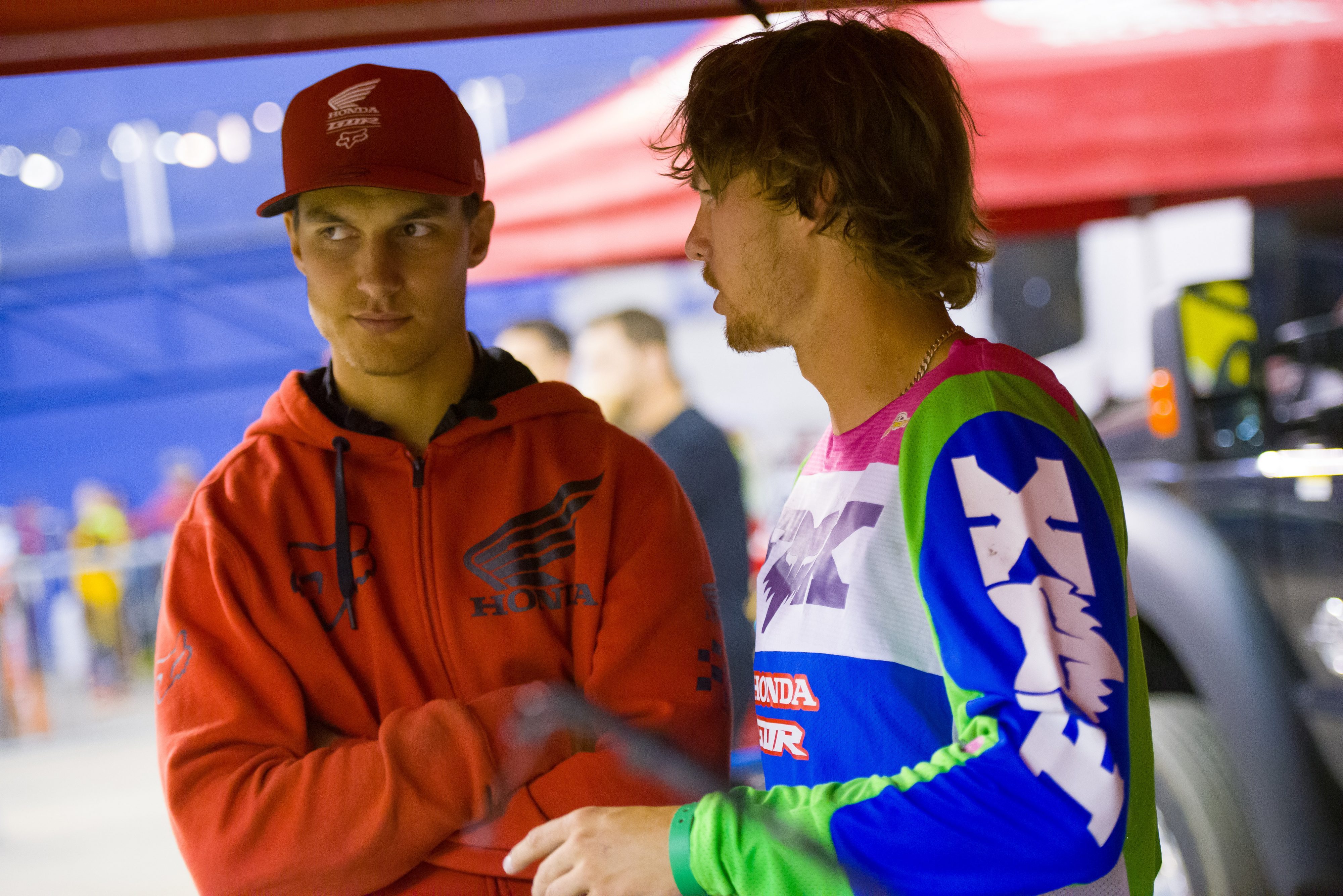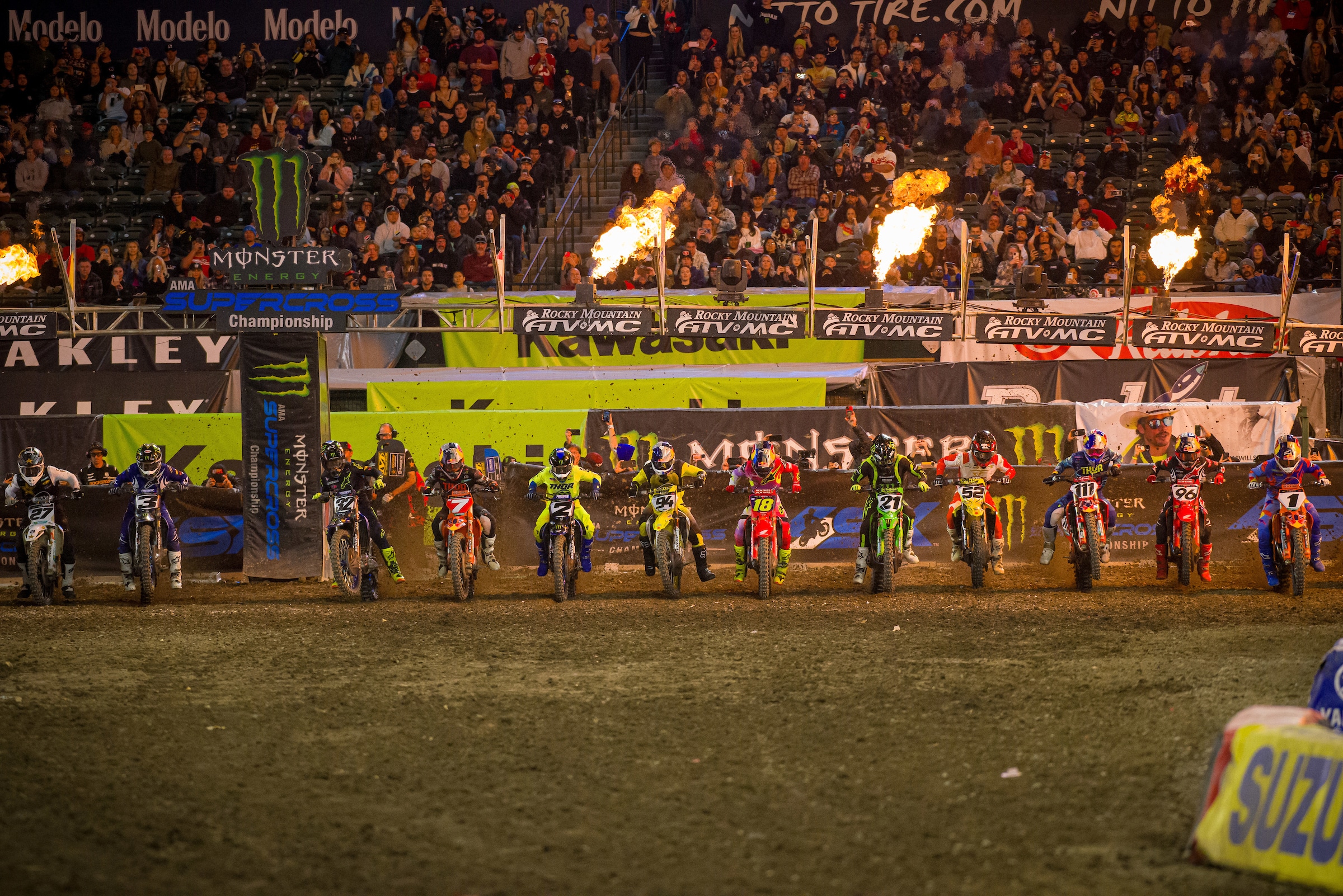The mental skills we use on the track are as unique to us as the individual races themselves. It is very important to remember that different riders will prepare for the same race in very different ways. What one athlete considers a mental strength may be a mental weakness to another. With that in mind we wanted to hear some of the questions that you, our readers, had for us in regards to your mental skill sets surrounding your race day preparation and experiences.
My Dad always tells me to focus before a race and during a race. What should I focus on?
The idea of optimal focus for any task simply refers to the individual’s ability to control or attend to the appropriate thoughts as they pass through your mind. When talking about focus during a race or other high performance situation, we must also consider that the rider is working on controlling their thoughts under the added stress of being under pressure. Our minds become flooded with thoughts, some good and some bad. Some are relevant to the task at hand while others are unwanted, unnecessary and harmful to our performance. To improve upon your focus you must identify which thoughts are useful and which thoughts are not.
An effective way to practice and strengthen your ability to focus on the right thoughts is with meditation, specifically performance imagery or visualization. We are blessed with powerful cognitive sensory abilities to create and re-create familiar situations in our minds. We can stop, pause and rewind these images at will, the same way a pro hockey team will review footage before a big game, with the exception of one major difference. Video footage only allows you to view the action from the vantage point of the camera, and only provides the visual and sometimes auditory sensations of the event. Your mind is much more powerful than a camera and can provide a much more advantageous perspective of important factors of your performance.
First, your mind can visualize your own individual performance from your own first person visual perspective. More importantly, as you go through your own visualizations you are likely to encounter negative or otherwise useless thoughts. These thoughts may simply distract your from your meditation, or create a cause for concern in your performance. This is an opportune time to practice your thought control. Allow yourself to push unwanted or unnecessary thoughts aside, and leave way for the productive and necessary ones which you know will help you perform to your fullest.
If you know that your focus or concentration needs to be on the timing of your turns and the clinching the throttle, there is little to no time to have any self-doubt or fear of failure. Practicing your thought control through tools like meditation or visualization is an effective way to master the skill of focusing.
I love listening to music before a race. Can you tell me why music keeps me calm?
Music is a tool that many riders and other performers use during their pre-race routines and workouts. I too was intrigued by this question while completing my undergraduate degree, as I would listen to music often as a part of my preparation and routines. I made it the subject of my Honors thesis, titled The effects of listening to music during exercise: Real vs. perceived exertion. Many athletes would report that while listening to music, their high intensity workout would seem easier when compared to sessions when they were not listening to music. We could attribute this effect to a number of neurological explanations in our brains including the release of dopamine, activation of multiple brain areas and structures, and even forcing both hemispheres to work together on a more dynamic level. However, one strong theory is that music has rhythm and can even be predictable, which provides us with a sense of control. When we listen to music we know and have heard before, it creates a sense of familiarity and trust, which is helpful for calming anxiety.
Sometimes I get really mad after a bad race. Is there anything I can do or think about to keep me from getting so upset with myself?
Anger is an emotion that is deeply rooted within the realm of competition and performance. When we compete against another person or group we are essentially comparing our personal or team skill sets to theirs. The outcome of the event objectively judges our performance and competence in the task. Anger is an ancient emotion controlled by an area in our brain called the amygdala. From a functionalist viewpoint, we experience anger in response to a sense of helplessness or injustice in our environment. Anger can also be complementary to other emotions such as fear or regret. After a bad race or poor performance we are often consumed with different emotions and thoughts, which can lead to feelings of anger and disappointment. The important thing to know about emotions is that we have more control over them than we think. Emotions are essentially responses to the experiences we encounter in our lives. We also know that our experiences can change based on the perspective we choose. In competition, as in life, we have very little control over the things that happen to us, especially the bad things. However, we do have 100% control over how we respond to the experiences we encounter. Choose to learn rather than be angry. Choose to be motivated rather than be upset. Choose to be better tomorrow than you were today.
Is there anything I can do to keep from making dumb mistakes during a race?
One thing you can do to immediately start helping yourself is to rephrase this question. Far too often I hear athletes and performers phrasing their questions and more importantly their self-talk this way. Asking me this question provides me with enough insight to know that your self-talk is hurting you rather than helping you. Our internal dialogue is an important part of our practice, our preparation and our race day performance. We need to be very clear with ourselves from day one of training what we want to accomplish on race day, and not confuse ourselves with talking about what we don’t want to happen on race day. This is what is meant when you hear the term ‘positive self-talk.’ It refers to the goals you have set for yourself and the objectives you have identified as necessary to achieve them. Telling yourself to “keep from making dumb mistakes during the race” sets you up to make dumb mistakes during the race. As you are reading this, if I told you to not think about… a pink elephant… would I be surprised to hear that you just spent a split second thinking of and picturing a big pink elephant? The answer would be no, nor am I surprised when a rider claims that they constantly make the same mistakes after telling themselves over and over and over again not to make that same mistake. Make your self-talk work for you. Make the words functional, instructional, and specific so when the time comes you will know exactly what to do.
Thank you for all of these great questions with regards to your mental game. I love the opportunity to help athletes tackle new obstacles in their training or performances. Please continue to reach out with your great questions, because chances are if it is on your mind, it is likely on the mind of many other riders just like you.






